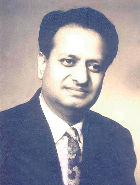Poetics In Ancient Greece And Rome Comments
It is surprising that the western literature was for centuries ignorant about the poetics of Aristotle, as L.J.Potts observes in his introduction to the translation of poetics. It is therefore not surprising that the West was not interested for long stretches of time after the days of Greece and Rome, on this discipline of literature called POETICS-
I was keen for years in gathering knowledge about the endeavours of different peoples of antiquity who developed old civilisations, in regard to the development of a science on POETRY and literature. Though I came across the fragmentary efforts of the Chinese people on the question of the causes of poetry, even before the Tang period, (for example Lu Chi's ‘Wen Fu' in the 3rd century A.D.) . There was no systematic evolution of a scientific work on the subject. May be my information is inadequate. However when I scanned across the Middle East on the corresponding periods and earlier, there was no evidence of any similar effort either in the Babylonian or Sumerian civilisations or the Egyptian. Perhaps much of the evidence of those periods has been lost irrevocably, leaving a vacuum up to the early period of Arab literature. The vacuum is amazingly, not confined to literature only but extends over the whole range of human thought, which means that the great civilisations of the middle east right up to the days of the fall of the Persian Empire and the Greek civilisation of the areas, have either sustained a serious loss of knowledge or did not produced such knowledge at all. However, it is quite reasonable to guess that in these areas in the periods corresponding to those of Socrates, Plato, and Aristotle and Aristorchus and so on which is between the 5th and 2nd centuries
B.C., there should have flourished great knowledge in different fields and this body of knowledge could not have been any the less than what was witnessed in Greece and Rome in those periods. All historical accounts of those areas and around remaining today, indicate at this. And when I take into the range of my vision the entire land between Greece and china, my mind tells me that during those periods of antiquity when great civilisations flourished simultaneously, there must have been large intercourse of peoples and thoughts across their frontiers and human knowledge might have been evolved by mutual exchange of thoughts and influences. In the event of this probability, it may nt be correct to say that a certain branch of knowledge was developed in this country and was not in the other, and so on. I am inclined to presume that knowledge in those periods would have acquired the form of a long-chain of thought-influences across all these countries, as is witnessed also in our own times. If some of these countries show gaps today it is right that we should only infer that they lost that knowledge due to serious historical cataclysms but not that they did not develop those faculties at all.
...
Read full text

Many readers like me may not be much familiar with Poetics. Your painstaking work and research on the subject is highly commendable. It traces the history of the material available down the ages. Thanks, Dear Friend.